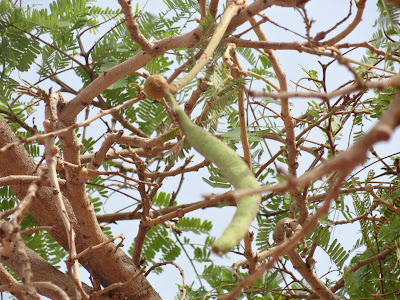The final installment on women's rights:
Marriage
By law:
Forced marriage is illegal. A woman has
the right to choose her own husband. If she is married before she
turns 18, the marriage is considered to be a forced marriage, whether
or not she gave her consent.
Furthermore, polygamous marriages are
not allowed under Beninese law.
In practice:
I do not have a clear idea of how many
women are forced into marriage in Sonsoro, but it is common in Benin.
Many women, however, are married before age 18. For example, last
summer, my 40-something-year-old colleague took a 17-year-old wife
(who is in sixth grade), supposedly with her consent after the
parents proposed the marriage. While such illegal marriages are
common in my area, complaints about such marriages are rare.
As for polygamy, it is the norm rather
than the exception in my area. However, it is exceptionally rare for
a couple, especially in Sonsoro, to have a state-recognized marriage.
Most marriages are religious or simply traditional.
Children
By law:
Women have a right to birth control, and the government encourages health centers to discuss family planning.
Previously, abortion was only allowed in the case of rape, incest, or
danger to the mother or child and only when the need had been
certified by the courts. Now, abortion is illegal in all cases.
In practice:
In Sonsoro, our health center only does about 5% of the family planning consultations the government expects us to do. The health center will not
sell or administer birth control to a woman without her husband's
consent. Husbands rarely allow their wives to be on birth control
because they believe that only the fear of pregnancy keeps their
wives faithful to them. Also, children are considered a man's wealth,
so he has an incentive to produce a large family.
One case that struck me was when a
woman came to our health center with her husband to have a pregnancy
test. She had a young baby on her back and the pregnancy test was
positive. I asked the nursing assistant if she was going to talk to
the couple about birth control since they were having children so
close together (we generally recommend birth spacing of 2-3 years
between children). The nursing assistant explained that the husband
refused to put his wife on birth control and wanted her to get an
abortion. He would rather abort unwanted pregnancies than allow his
wife to take birth control.
On the subject of abortion, some middle
school teachers estimated yesterday that at least a third of their female
students had had an abortion at some point. Since abortion is
illegal, these clandestine abortions are extremely dangerous.
As for child custody in the case of
divorce, the traditional practice is that the man gets custody and
the children will be raised by one of his other wives. Therefore,
when a woman wants to escape an abusive relationship, she may have to
choose to sacrifice her children.
Female Genital Mutilation
By law:
Female genital mutilation is illegal in
Benin.
In practice:
Female genital mutilation still exists
in certain parts of Benin, particularly the northwest. I have never
heard of it being practiced in Sonsoro, but one of my work partners
pointed out the tree under which it used to be done. He said it was
very common 20 years ago but that he no longer hears of it being
practiced in Sonsoro. In all of Benin, 30-50% of women have been
subjected to female genital mutilation, according to one estimate.






